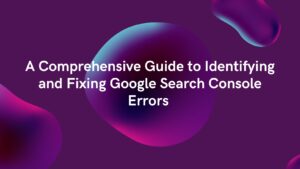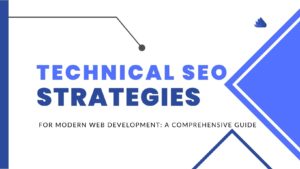Introduction
In today’s digital age, the landscape of business marketing and customer engagement has shifted dramatically. For small businesses, establishing a strong online presence is no longer just an option; it’s a necessity for survival and growth. In the vast digital marketplace, where competition is fierce and attention spans are short, standing out to your potential customers is crucial. This is where Search Engine Optimization (SEO) comes into play.
SEO is more than just a buzzword; it’s a pivotal tool that can significantly increase a business’s online visibility and draw in potential customers. It involves optimizing your website and content so that search engines like Google rank your site higher in search results. The higher your rank, the more likely people are to find your business when they search online.
This blog post is tailored specifically for small business owners and entrepreneurs who are looking to harness the power of SEO. We understand that you may not have a large marketing team or a hefty budget, but that doesn’t mean you can’t make a big impact online. Here, we will walk you through 10 essential SEO tips that are not only effective but also practical and manageable for small businesses. These tips will cover everything from understanding your audience to optimizing your website’s performance, all aimed at enhancing your online presence.
1. Understand Your Audience
Before you start any SEO effort, it’s crucial to understand who your audience is and what they need. Knowing this shapes your entire strategy. Ask yourself: What are their challenges? How do they use the internet to find solutions? Tools like Google Analytics can provide invaluable insights into your audience’s behavior and preferences. Use this data to align your SEO strategy with how your audience searches for solutions online.
2. Optimize Your Website for Mobile
In today’s world, more internet browsing happens on smartphones than on desktop computers. Google recognizes this trend and prefers websites that are optimized for mobile. Ensure your website has a responsive design that adapts smoothly to different screen sizes. This not only helps in SEO but also provides a better experience for your users.
3. Focus on Local SEO
For small businesses, local SEO is incredibly important. This means making sure your business appears in local search results. A crucial step is to set up and maintain your Google My Business listing. This ensures your business shows up in Google Maps and local searches, providing essential information like your location, hours of operation, and contact details. Encourage happy customers to leave reviews, which can bolster your local SEO efforts.
4. Use Relevant Keywords
Keywords are the foundation of SEO. They help connect your content with the right audience. Use tools like Google Keyword Planner to find terms and phrases that your target audience is searching for. Then, incorporate these keywords naturally into your website’s content, titles, and meta descriptions.
5. Create Quality Content
High-quality, relevant content is key to successful SEO. Regularly publish articles, guides, or news that provide value to your audience. This not only helps with SEO but also establishes your business as a knowledgeable authority in your field.
6. Optimize Site Speed
The speed of your website can significantly impact your SEO rankings. A slow website can lead to a high bounce rate as visitors may get frustrated and leave. Use tools like Google PageSpeed Insights to analyze and optimize your site’s loading times.
7. Use Social Media Effectively
While social media doesn’t directly contribute to SEO, it’s an effective tool for driving traffic to your website. Active social media profiles can extend your reach and help distribute your content to a broader audience. Share your content on platforms like Facebook, Twitter, and LinkedIn.
8. Build Quality Backlinks
Backlinks from reputable websites can greatly boost your site’s SEO. Aim to get linked by industry blogs, influencers, or local businesses. However, be wary of buying links, as this can negatively impact your SEO.
9. Implement Structured Data
Structured data helps search engines better understand and index your website’s content. Use schema markup to provide clear information about your business, such as products, services, reviews, and events. This can enhance how your business appears in search results.
10. Monitor and Adjust
SEO isn’t a set-and-forget strategy. Regularly check your website’s performance using tools like Google Search Console. Keep track of what’s working and what isn’t, and be prepared to adjust your strategy accordingly. SEO is an ongoing process that requires continuous effort and adaptation.




